


A tangible employment action is any action causing a significant change in your employment status. This includes:
Basically, it means that your employer took some action against you. And, in most cases, that action harmed you. In some cases, however, the change in employment status can benefit you. An example would be a promotion or pay raise.
A tangible employment action is what we in the legal world call a “term of art.” Lawyers use these terms to refer to some legal principles. For instance “double jeopardy” means that you cannot be charged with the same crime twice.
“Tangible employment action” is a term of art in employment law.
Quid pro quo sexual harassment is the style of harassment tied to a tangible employment action. In a quid pro quo sexual harassment case, a boss might offer you sexual advances in exchange for a promotion.
You then perform sexual favors, and your boss gives you a promotion. Here, even though you were not fired, you would still have a case for sexual harassment. The tangible employment action is the promotion.
Employers are strictly liable (no defense available) when workplace harassment involves a tangible employment action. This means that the employer need only prove that the unlawful harassment and the tangible employment action occurred.
The law protects you where your boss, in a power position, used that power to obtain a sexual favor in return.
As noted above, firing, demotion, and suspension are all tangible employment actions. That means that if you suffer those adverse actions, you might be able to sue.
It’s important to remember, however, that in the United States, employment is at will. At-will employment means that you can be fired for any reason as long as the reason is not discriminatory/illegal.
Although sexual harassment can involve a tangible employment action, one is not required.
One type of harassment is hostile work environment. A hostile work environment forms when the harassment is so severe or pervasive that it rises to “legal harassment.”
In a hostile work environment case, no tangible employment action needs to be taken.
It’s enough that your harassment was so severe or pervasive that a hostile work environment was created.
Employers are not strictly liable for hostile work environment claims. And the company can assert the defense that:
If the company satisfied these two elements, then the company will not be liable for its supervisors’ or employees’ workplace harassment.
In most cases, it’s obvious who can impose tangible employment actions. It’s usually your supervisor/manager.
Under the law, according to the Equal Employment Opportunity Commission (an agency charged with investigating employment violations):
“an individual qualifies as an employee’s ‘supervisor’ if he or she is authorized to undertake tangible employment decisions affecting the employee.”
Your supervisor is normally empowered to demote, reassign, and, in some cases, fire you. And that’s not to say that there are not other ways in which your supervisor might impose an adverse employment action (a/k/a tangible employment action) against you.
It’s also worth noting, which may not be obvious, that your employer is liable for the tangible actions taken by your supervisor.
Previously, employers used to defend actions against them by saying that they did not know that an employee was being discriminated against and resulted in an adverse employment action.
The Supreme Court of the United States, however, has held that employers are vicariously liable for the acts of their supervisors. In other words, employers are held responsible for their supervisor’s stupidity, if it results in a violation of employment laws.
Also, as you may have guessed, your Human Resources department can take a tangible employment action against you. In most cases, it will be your supervisor who is authorized to fire, demote, reassign, etc. But in some cases, a supervisor will involve the Human Resources department. The Human Resource (“HR”) department may simply look at your performance reviews and take your supervisor’s suggestions.
In other cases, your HR department might actually perform some type of independent investigation.
Companies vary in how they delegate the power to take tangible employment action. But, what’s important, is that if an adverse employment action is taken, you may have recourse.
A common question that we encounter is whether failure to promote is a tangible employment action.
Yes, the failure to promote is recognized as a significant change in employment status. As such, the decision not to promote an employee constitutes a tangible employment action.
Like other tangible employment actions, the failure to promote is only one half of the equation. The employee will be tasked with showing that the non-promotion was due to an illegal reason.
In every employment case, the ultimate goal is to recover damages to compensate for the harm that the employer caused the employee. That’s no different when the tangible employment action is the failure to promote.
The damages are obvious. You would receive the difference between the amount of money that you would have made, if promoted, compared to the amount of money you currently make.
Whether you should sue to try and recoup these damages is another question. You should speak to an employment lawyer to have that question answered.
But here are some things you might consider. If you bring any lawsuit while you are still employed, there’s a chance that your employer might retaliate. Of course, you have protection under the law. An employer cannot retaliate against you for bringing an employment lawsuit.
Yet employers sometimes will try. They may pepper your employee file with bad evaluations, and try to create a paper trail to justify an eventual termination.
A good employment lawyer can represent you here, and you’d have a good case. However, you would still have to find a new job in the meantime.
On the other hand, if you’re ready to leave the job anyway, you have less to lose by bringing suit. If you were going to leave the job anyway, then maybe you should consider suing to recover your lost wages.
Further, some employers actually do change their behavior when faced with a lawsuit. Lawsuits are expensive. And perhaps your lawsuit will bring to light mismanagement and the discrimination you suffered.
Hopefully, you’ve learned a bit about what is a tangible employment action. And our walkthrough of the failure to promote, as an example, was helpful.
If your employer imposes a tangible employment action against you, an employment lawyer can walk you through your options and assess your situation and possible recourse.
The Lacy Employment Law Firm
Ⓒ 2022 All Rights Are Reserved